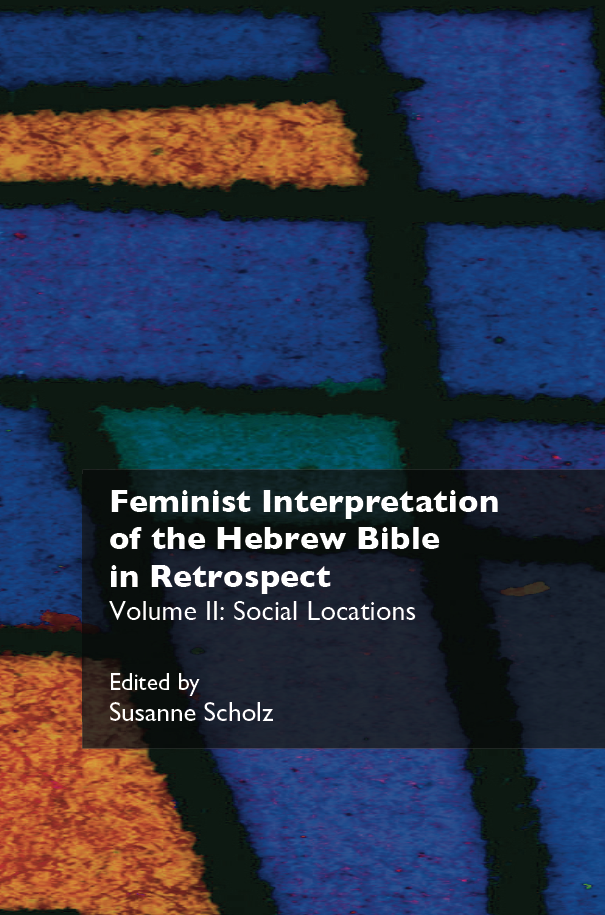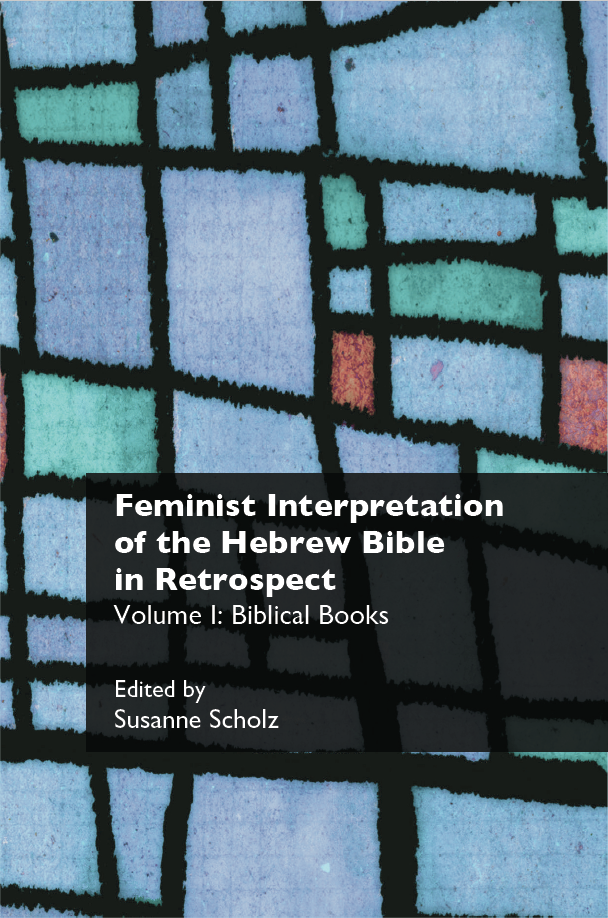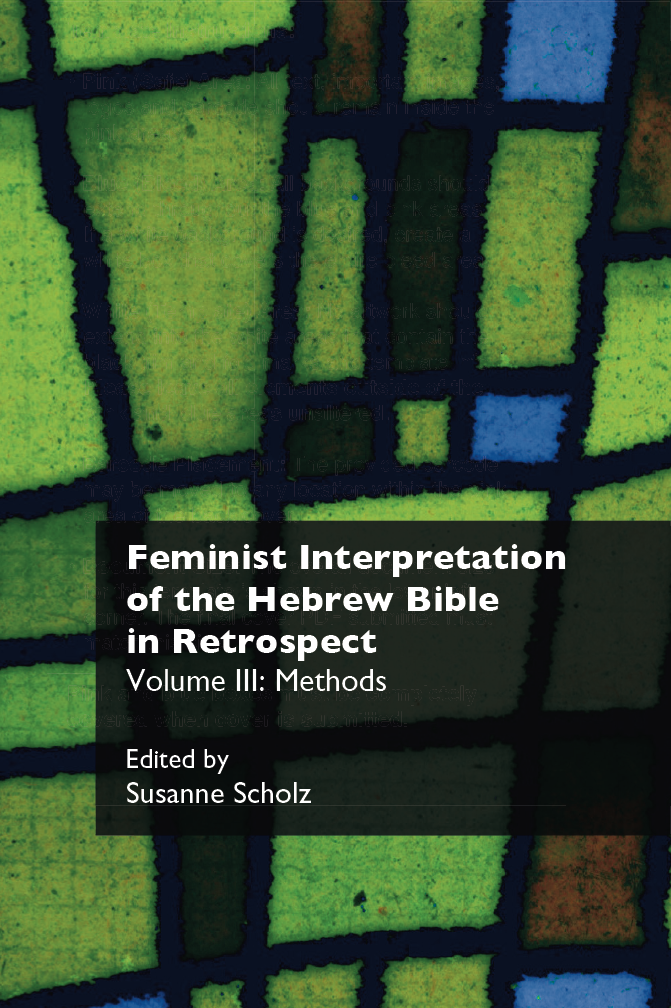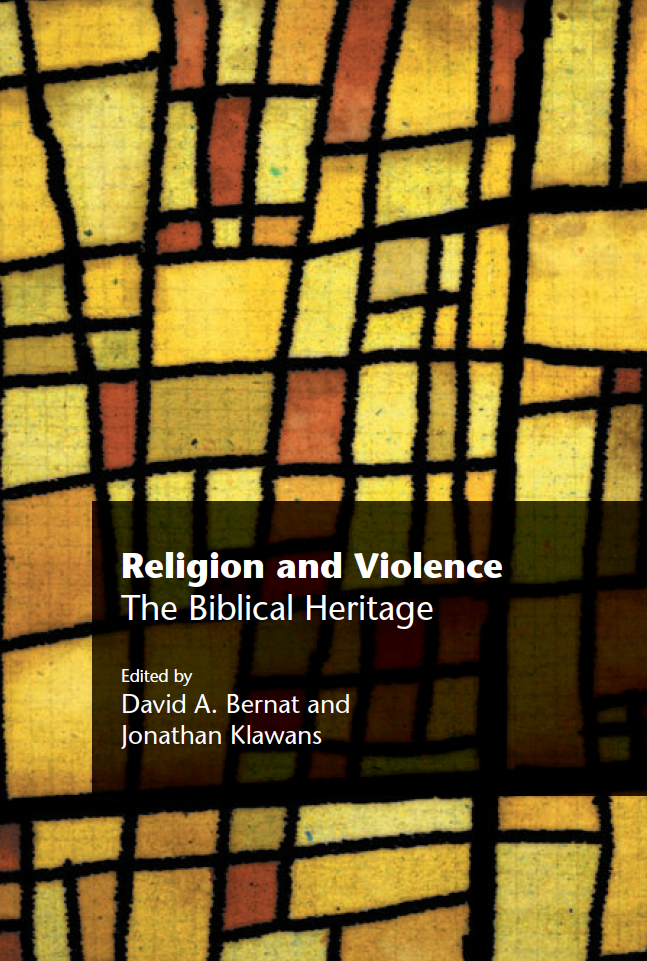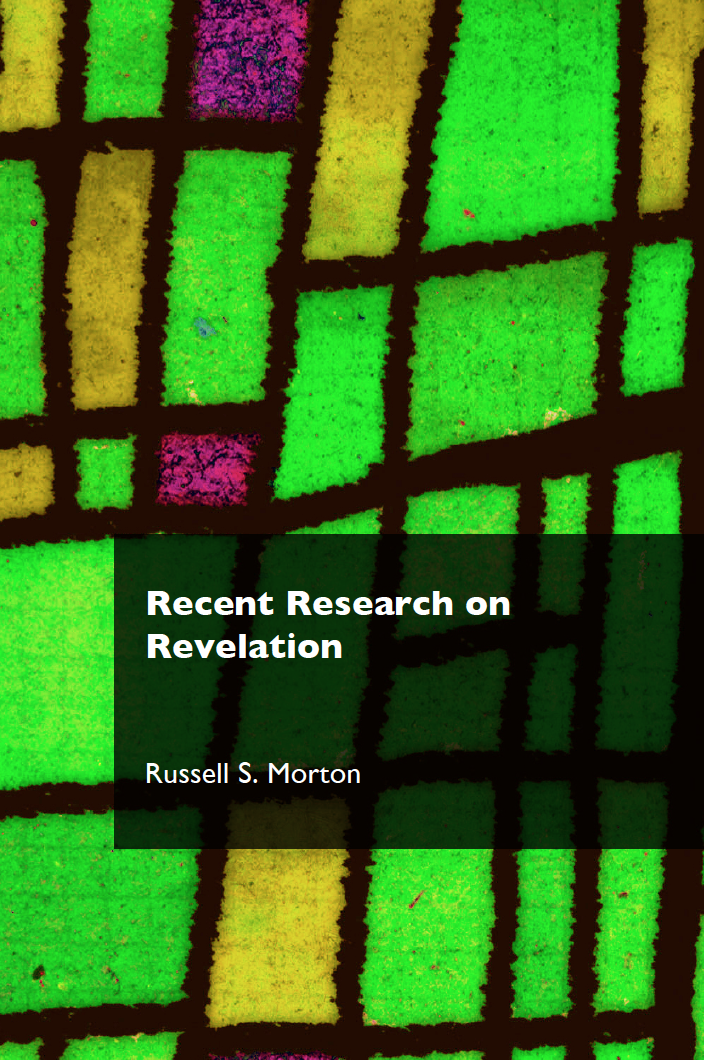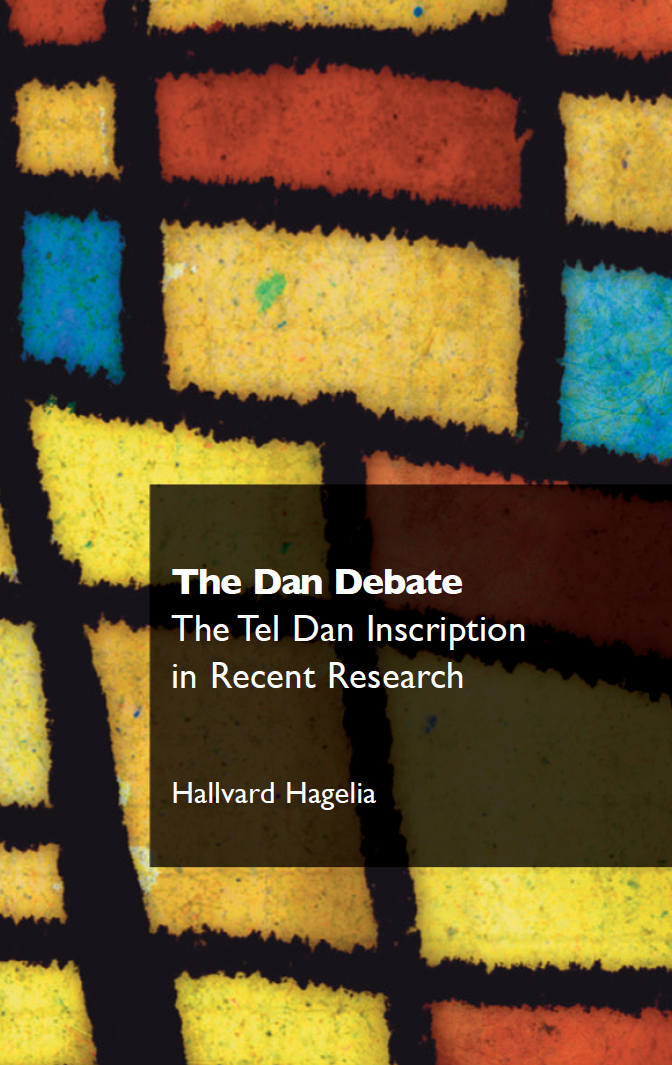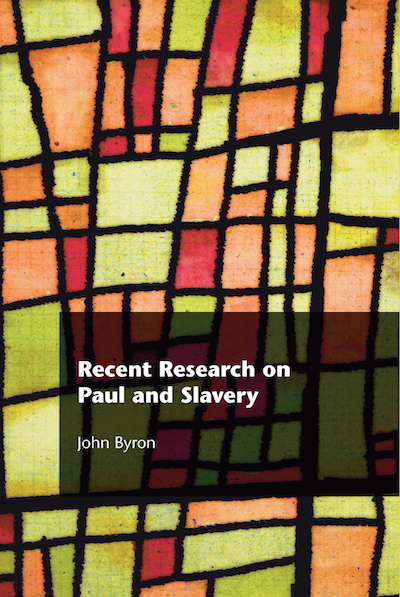Feminist Interpretation of the Hebrew Bible in Retrospect: II. Social Locations
Published: Nov 2017
£25.00 – £60.00
This is the second of a set of three volumes reviewing the progress of feminist Hebrew Bible scholarship over the last 40 years. In it, fourteen essayists focus on the feminist work from various geographical areas and different hermeneutical locations.
Each essay explores the range and depth of feminist exegesis, presents substantial yet easily digestible trends, preferences and perspectives in feminist scholarship, and demonstrates that feminist biblical approaches are not monolithic but diverse in feminist conviction, hermeneutics and method.
The result of this collaborative task is a comprehensive though selective survey, which includes suggestions for future feminist engagement. What feminist biblical scholarship has accomplished during the past forty years is no small feat. But it becomes clear from this volume that much remains to be done in the pursuit of dismantling structures of gender domination in Hebrew Bible exegesis and beyond.
Feminist Interpretation of the Hebrew Bible in Retrospect: II. Social Locations
£25.00 – £60.00
This is the second of a set of three volumes reviewing the progress of feminist Hebrew Bible scholarship over the last 40 years. In it, fourteen essayists focus on the feminist work from various geographical areas and different hermeneutical locations.
Each essay explores the range and depth of feminist exegesis, presents substantial yet easily digestible trends, preferences and perspectives in feminist scholarship, and demonstrates that feminist biblical approaches are not monolithic but diverse in feminist conviction, hermeneutics and method.
The result of this collaborative task is a comprehensive though selective survey, which includes suggestions for future feminist engagement. What feminist biblical scholarship has accomplished during the past forty years is no small feat. But it becomes clear from this volume that much remains to be done in the pursuit of dismantling structures of gender domination in Hebrew Bible exegesis and beyond.
Feminist Interpretation of the Hebrew Bible in Retrospect: I. Biblical Books
Published: Oct 2017
£25.00 – £60.00
This is the first of a set of three volumes reviewing the progress of feminist Hebrew Bible scholarship over the last 40 years. In it, fourteen essayists focus on the feminist work on each of the biblical books.
Each essay explores the range and depth of feminist exegesis, presents substantial yet easily digestible trends, preferences and perspectives in feminist scholarship, and demonstrates that feminist biblical approaches are not monolithic but diverse in feminist conviction, hermeneutics and method.
The result of this collaborative task is a comprehensive though selective survey, which includes suggestions for future feminist engagement. What feminist biblical scholarship has accomplished during the past forty years is no small feat. But it becomes clear from this volume that much remains to be done in the pursuit of dismantling structures of gender domination in Hebrew Bible exegesis and beyond.
Feminist Interpretation of the Hebrew Bible in Retrospect: I. Biblical Books
£25.00 – £60.00
This is the first of a set of three volumes reviewing the progress of feminist Hebrew Bible scholarship over the last 40 years. In it, fourteen essayists focus on the feminist work on each of the biblical books.
Each essay explores the range and depth of feminist exegesis, presents substantial yet easily digestible trends, preferences and perspectives in feminist scholarship, and demonstrates that feminist biblical approaches are not monolithic but diverse in feminist conviction, hermeneutics and method.
The result of this collaborative task is a comprehensive though selective survey, which includes suggestions for future feminist engagement. What feminist biblical scholarship has accomplished during the past forty years is no small feat. But it becomes clear from this volume that much remains to be done in the pursuit of dismantling structures of gender domination in Hebrew Bible exegesis and beyond.
Feminist Interpretation of the Hebrew Bible in Retrospect. III: Methods
Published: Oct 2017
£25.00 – £60.00
This is the third of a set of three volumes reviewing the progress of feminist Hebrew Bible scholarship over the last forty years. In this third volume, eighteen contributors focus on the wide range of exegetical methods as they have been productively employed in feminist biblical interpretations.
More specifically, each essay investigates how feminist Hebrew Bible exegetes have worked with exegetical methods. Each essay surveys the method under consideration as it has emerged in academic discourse generally and in biblical studies in particular. Each essay also explains how feminist uses of the various exegetical methods have been deeply embedded within the theological, cultural, and even political expectations and assumptions of readers of the Bible.
This volume asks readers to come to terms with the following question: What are the best methods for feminist exegesis in the light of past and present socio-political, theological, or hermeneutical developments in reading the Bible? After all, feminist theorists have come to recognize that methods are always already situated within powerful epistemological and methodological structures that have their roots in vast arrays of historical, political, economic, social, and religious factors. This volume encourages feminist debate on these complex issues that stand at the heart of biblical exegesis.
Feminist Interpretation of the Hebrew Bible in Retrospect. III: Methods
£25.00 – £60.00
This is the third of a set of three volumes reviewing the progress of feminist Hebrew Bible scholarship over the last forty years. In this third volume, eighteen contributors focus on the wide range of exegetical methods as they have been productively employed in feminist biblical interpretations.
More specifically, each essay investigates how feminist Hebrew Bible exegetes have worked with exegetical methods. Each essay surveys the method under consideration as it has emerged in academic discourse generally and in biblical studies in particular. Each essay also explains how feminist uses of the various exegetical methods have been deeply embedded within the theological, cultural, and even political expectations and assumptions of readers of the Bible.
This volume asks readers to come to terms with the following question: What are the best methods for feminist exegesis in the light of past and present socio-political, theological, or hermeneutical developments in reading the Bible? After all, feminist theorists have come to recognize that methods are always already situated within powerful epistemological and methodological structures that have their roots in vast arrays of historical, political, economic, social, and religious factors. This volume encourages feminist debate on these complex issues that stand at the heart of biblical exegesis.
Religion and Violence: The Biblical Heritage
Published: Jun 2015
£14.50 – £35.00
Violence that is motivated by--and justified by--religious ideas, authorities and texts is everywhere around us. Some say that the origins of religion and human violence are inherently connected, and that the explanation for religious violence lies at the heart of the religious imagination itself, others that human violence was there long before religion ever came about, being no more than an unfortunate by-product of human evolution. Reconsidering the question of religion and violence in the biblical heritage is a narrower--but nonetheless essential--endeavour, to which the present volume addresses itself.
After an introductory chapter by the editors on religion, violence and the Bible, Ziony Zevit writes on violence in Israelite culture and in the Bible, Tamar Kamionkowski on violence in prophetic literature, Stephen Geller on the prophetic roots of religious violence, David Wright on homicide, talion and vengeance in the Covenant Code, Lawrence Wills on the death of the hero and the violent death of Jesus, Jennifer Wright Knust on sacrifice and sacred text in Justin, and David Frankfurter on vengeance fantasies in the New Testament. Stephen Marini offers concluding reflections on religion and violence under the rubric of conflict, subversion and sacrifice.
Religion and Violence: The Biblical Heritage
£14.50 – £35.00
Violence that is motivated by--and justified by--religious ideas, authorities and texts is everywhere around us. Some say that the origins of religion and human violence are inherently connected, and that the explanation for religious violence lies at the heart of the religious imagination itself, others that human violence was there long before religion ever came about, being no more than an unfortunate by-product of human evolution. Reconsidering the question of religion and violence in the biblical heritage is a narrower--but nonetheless essential--endeavour, to which the present volume addresses itself.
After an introductory chapter by the editors on religion, violence and the Bible, Ziony Zevit writes on violence in Israelite culture and in the Bible, Tamar Kamionkowski on violence in prophetic literature, Stephen Geller on the prophetic roots of religious violence, David Wright on homicide, talion and vengeance in the Covenant Code, Lawrence Wills on the death of the hero and the violent death of Jesus, Jennifer Wright Knust on sacrifice and sacred text in Justin, and David Frankfurter on vengeance fantasies in the New Testament. Stephen Marini offers concluding reflections on religion and violence under the rubric of conflict, subversion and sacrifice.
Recent Research on Revelation
Published: Sep 2014
£60.00
Perhaps no other biblical book has been the source of as much consternation to its readers as the Revelation of John of Patmos. Their distress has been accentuated by popular approaches, which often advance sensationalist visions of the future. But did John's vision focus on the distant future, or was it directed to concerns of his own day? If it was directed to his own situation in Roman Asia Minor, what lasting significance, if any, does it have for people two thousand years after the composition of the work?
Recent Research on Revelation is an ambitious attempt to comprehend the great range of scholarly views on the Apocalypse. Avoiding popular and sensational readings of Revelation, this book outlines how scholars of various stripes grapple with John's dramatic and often disturbing book. Beginning with a historical survey of scholarly opinion, the book examines the question of what form of literature Revelation is. It then offers an overview of various methods used to interpret the Apocalypse, ranging from traditional historical-critical analysis to feminist and postcolonial criticisms.
The Apocalypse continues to evoke strong reactions in its readers, both positive and negative, from comfort to perplexity to revulsion. At the very least, it stimulates readers' interest to an extent not surpassed by any other New Testament book. We cannot shut our eyes to John's vision, for it has had too much impact on who we are, whether Christian or not.
Recent Research on Revelation
£60.00
Perhaps no other biblical book has been the source of as much consternation to its readers as the Revelation of John of Patmos. Their distress has been accentuated by popular approaches, which often advance sensationalist visions of the future. But did John's vision focus on the distant future, or was it directed to concerns of his own day? If it was directed to his own situation in Roman Asia Minor, what lasting significance, if any, does it have for people two thousand years after the composition of the work?
Recent Research on Revelation is an ambitious attempt to comprehend the great range of scholarly views on the Apocalypse. Avoiding popular and sensational readings of Revelation, this book outlines how scholars of various stripes grapple with John's dramatic and often disturbing book. Beginning with a historical survey of scholarly opinion, the book examines the question of what form of literature Revelation is. It then offers an overview of various methods used to interpret the Apocalypse, ranging from traditional historical-critical analysis to feminist and postcolonial criticisms.
The Apocalypse continues to evoke strong reactions in its readers, both positive and negative, from comfort to perplexity to revulsion. At the very least, it stimulates readers' interest to an extent not surpassed by any other New Testament book. We cannot shut our eyes to John's vision, for it has had too much impact on who we are, whether Christian or not.
Recent Research on the Historical Jesus
Published: Sep 2014
£60.00
Over the past two hundred years, several have ventured to write a history of Jesus, but few have discussed their method of writing about the past with any depth. Unspoken assumptions or bias often dictate what the historian will find. The fact that there are so many conflicting pictures of Jesus compounds the problem. In the last thirty years of Jesus research, which have been identified as the Third Quest for the historical Jesus, historians have agreed that Jesus makes the most sense within a Jewish context, a setting that allows historians to write about Jesus from various historical approaches.
Simpson addresses the issue of method in historical Jesus research by looking at two prominent historians within the Third Quest —John Meier and James Dunn. Both Meier and Dunn typify distinct approaches to the historical Jesus, and both claim to be a part of the Third Quest. Simpson analyses their philosophy of history and historical method. In the second part of the book, Simpson looks at how Meier and Dunn handle certain key events in the life of Jesus. The treatment of these events serves as a way of highlighting the drawbacks and advantages of each method.
These distinct approaches point to the tensions that make up the Third Quest and illustrate how the concerns of recent research, evolving over a short period of time, have brought old questions to the surface in new ways. By describing the current situation of historical Jesus research as evidenced by Meier and Dunn, Simpson maps out some promising lines of future research.
Recent Research on the Historical Jesus
£60.00
Over the past two hundred years, several have ventured to write a history of Jesus, but few have discussed their method of writing about the past with any depth. Unspoken assumptions or bias often dictate what the historian will find. The fact that there are so many conflicting pictures of Jesus compounds the problem. In the last thirty years of Jesus research, which have been identified as the Third Quest for the historical Jesus, historians have agreed that Jesus makes the most sense within a Jewish context, a setting that allows historians to write about Jesus from various historical approaches.
Simpson addresses the issue of method in historical Jesus research by looking at two prominent historians within the Third Quest —John Meier and James Dunn. Both Meier and Dunn typify distinct approaches to the historical Jesus, and both claim to be a part of the Third Quest. Simpson analyses their philosophy of history and historical method. In the second part of the book, Simpson looks at how Meier and Dunn handle certain key events in the life of Jesus. The treatment of these events serves as a way of highlighting the drawbacks and advantages of each method.
These distinct approaches point to the tensions that make up the Third Quest and illustrate how the concerns of recent research, evolving over a short period of time, have brought old questions to the surface in new ways. By describing the current situation of historical Jesus research as evidenced by Meier and Dunn, Simpson maps out some promising lines of future research.
The Dan Debate: The Tel Dan Inscription in Recent Research
Published: Aug 2009
£45.00
The Tel Dan inscription was found in three fragments on Tel Dan in northern Israel in 1993 and 1994. It is one of the most controversial textual archaeological finds since the discovery of the Dead Sea Scrolls. Most scholars agree that the text, which is written in Old Aramaic, is to be dated to the late ninth century BCE. It refers to a war between the Aramaeans and the northern kingdom of Israel. The text is apparently represented as authored by King Hazael of Damascus, and many scholars have discerned the names of the kings Jehoram and Ahaziah of Israel and Judah in the fragmented text.
There has been an extremely lively, and even heated, debate over both its language and its content, and it is time that a full survey of the debate should be undertaken. In his previous book, The Tel Dan Inscription: A Critical Investigation of Recent Research on its Palaeography and Philology (2006)--now distributed by Sheffield Phoenix Press--Hallvard Hagelia has examined those more technical aspects of the debate. In the present corollary volume, The Dan Debate: The Tel Dan Inscription in Recent Research, Hagelia analyses the debate on all the other more general aspects of the inscription. His own view is to support the joining of the fragments as it is done by the editors, Biran and Naveh, and to translate the controversial term bytdwd as 'House of David'.
The debate on the Tel Dan is interesting and significant in itself, but it can also be viewed as a case study of the wider debate between the so-called 'minimalists' and 'maximalists' in Hebrew Bible scholarship. In particular Hagelia's two books offer an notable exchange of views with George Athas's The Tel Dan Inscription: A Reappraisal and a New Interpretation (2003).
The Dan Debate: The Tel Dan Inscription in Recent Research
£45.00
The Tel Dan inscription was found in three fragments on Tel Dan in northern Israel in 1993 and 1994. It is one of the most controversial textual archaeological finds since the discovery of the Dead Sea Scrolls. Most scholars agree that the text, which is written in Old Aramaic, is to be dated to the late ninth century BCE. It refers to a war between the Aramaeans and the northern kingdom of Israel. The text is apparently represented as authored by King Hazael of Damascus, and many scholars have discerned the names of the kings Jehoram and Ahaziah of Israel and Judah in the fragmented text.
There has been an extremely lively, and even heated, debate over both its language and its content, and it is time that a full survey of the debate should be undertaken. In his previous book, The Tel Dan Inscription: A Critical Investigation of Recent Research on its Palaeography and Philology (2006)--now distributed by Sheffield Phoenix Press--Hallvard Hagelia has examined those more technical aspects of the debate. In the present corollary volume, The Dan Debate: The Tel Dan Inscription in Recent Research, Hagelia analyses the debate on all the other more general aspects of the inscription. His own view is to support the joining of the fragments as it is done by the editors, Biran and Naveh, and to translate the controversial term bytdwd as 'House of David'.
The debate on the Tel Dan is interesting and significant in itself, but it can also be viewed as a case study of the wider debate between the so-called 'minimalists' and 'maximalists' in Hebrew Bible scholarship. In particular Hagelia's two books offer an notable exchange of views with George Athas's The Tel Dan Inscription: A Reappraisal and a New Interpretation (2003).
Recent Research on the Major Prophets
Published: Oct 2008
£60.00
Given the many new methods and approaches for interpreting biblical literature that have appeared in the past several decades, it is hardly surprising that our understanding of the prophets Isaiah, Jeremiah and Ezekiel has expanded and diversified at a rapid pace. Historical-critical understandings and perspectives have been challenged and often dramatically altered. New approaches, such as social-scientific criticism, rhetorical criticism, feminist criticism, reader response criticism, literary analysis, anthropological analysis, structuralist criticism, ideological criticism, and deconstructionist criticism have both challenged old approaches and shed new light on the texts being studied.
In this volume, Alan Hauser presents eleven articles, each with an extensive bibliography, that survey the variety and depth of recent and contemporary scholarship on these three prophets. Five of them are new to this volume. All are written by experts in each area of scholarship, including Marvin Sweeney, Paul Kim, Roy Melugin, Robert P. Carroll, Peter Diamond, Katheryn Pfisterer Darr and Risa Levitt Kohn. Hauser introduces the volume with a comprehensive summary and overview of the articles.
Recent Research on the Major Prophets
£60.00
Given the many new methods and approaches for interpreting biblical literature that have appeared in the past several decades, it is hardly surprising that our understanding of the prophets Isaiah, Jeremiah and Ezekiel has expanded and diversified at a rapid pace. Historical-critical understandings and perspectives have been challenged and often dramatically altered. New approaches, such as social-scientific criticism, rhetorical criticism, feminist criticism, reader response criticism, literary analysis, anthropological analysis, structuralist criticism, ideological criticism, and deconstructionist criticism have both challenged old approaches and shed new light on the texts being studied.
In this volume, Alan Hauser presents eleven articles, each with an extensive bibliography, that survey the variety and depth of recent and contemporary scholarship on these three prophets. Five of them are new to this volume. All are written by experts in each area of scholarship, including Marvin Sweeney, Paul Kim, Roy Melugin, Robert P. Carroll, Peter Diamond, Katheryn Pfisterer Darr and Risa Levitt Kohn. Hauser introduces the volume with a comprehensive summary and overview of the articles.
Recent Research on Paul and Slavery
Published: Aug 2008
£45.00
New Testament scholarship and Paul have had a complicated relationship over the question of slavery. For many decades there has been a struggle to reconcile the abolitionist cause with a biblical text that seemingly supports the institution of slavery. Then the more recent discovery of inscriptions and documents referring to slaves in antiquity has added new dimensions to the debate. Furthermore, new interpretative approaches to the New Testament, including social-scientific criticism, rhetorical criticism and postcolonial criticism, have challenged earlier interpretations of Paul's statements about slavery. The issue has even more recently taken on a new shape as descendants of former North American slaves have engaged with the way Paul has been interpreted and used to justify the enslavement of their ancestors.
In this volume, John Byron provides a survey of 200 years of scholarly interpretation of Paul and slavery with a focus on the last 35 years. After a general overview of the history of research, Byron focusses in turn on four specific areas: African-American responses to Paul, Paul's slavery metaphors, the elliptical phrase in 1 Corinthians 7.21, and the letter to Philemon. An epilogue highlights four areas in which scholarship is continuing to change its understanding of ancient slavery and, in consequence, its interpretation of Paul. New Testament students and scholars will find the volume an valuable specialist resource that collects and analyses the most important developments on Paul and slavery.
Recent Research on Paul and Slavery
£45.00
New Testament scholarship and Paul have had a complicated relationship over the question of slavery. For many decades there has been a struggle to reconcile the abolitionist cause with a biblical text that seemingly supports the institution of slavery. Then the more recent discovery of inscriptions and documents referring to slaves in antiquity has added new dimensions to the debate. Furthermore, new interpretative approaches to the New Testament, including social-scientific criticism, rhetorical criticism and postcolonial criticism, have challenged earlier interpretations of Paul's statements about slavery. The issue has even more recently taken on a new shape as descendants of former North American slaves have engaged with the way Paul has been interpreted and used to justify the enslavement of their ancestors.
In this volume, John Byron provides a survey of 200 years of scholarly interpretation of Paul and slavery with a focus on the last 35 years. After a general overview of the history of research, Byron focusses in turn on four specific areas: African-American responses to Paul, Paul's slavery metaphors, the elliptical phrase in 1 Corinthians 7.21, and the letter to Philemon. An epilogue highlights four areas in which scholarship is continuing to change its understanding of ancient slavery and, in consequence, its interpretation of Paul. New Testament students and scholars will find the volume an valuable specialist resource that collects and analyses the most important developments on Paul and slavery.

